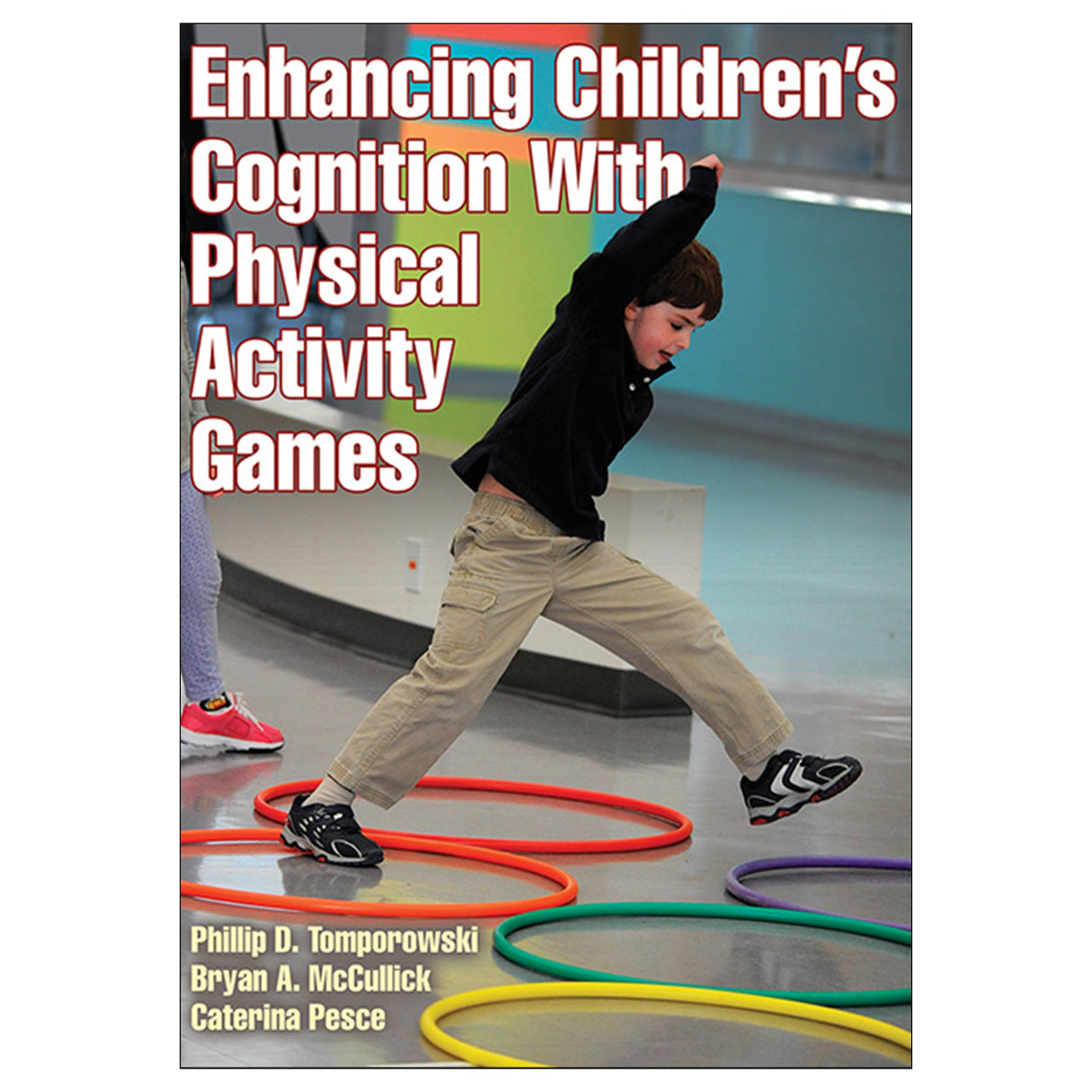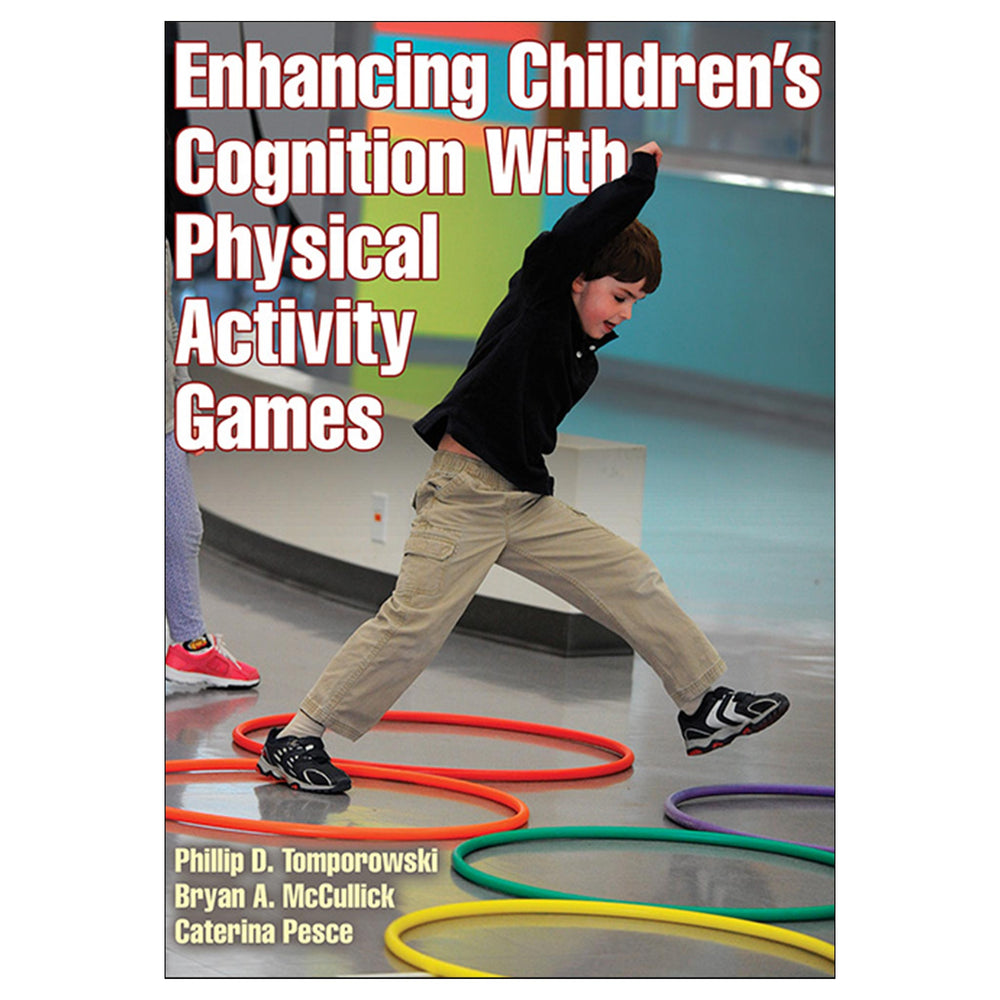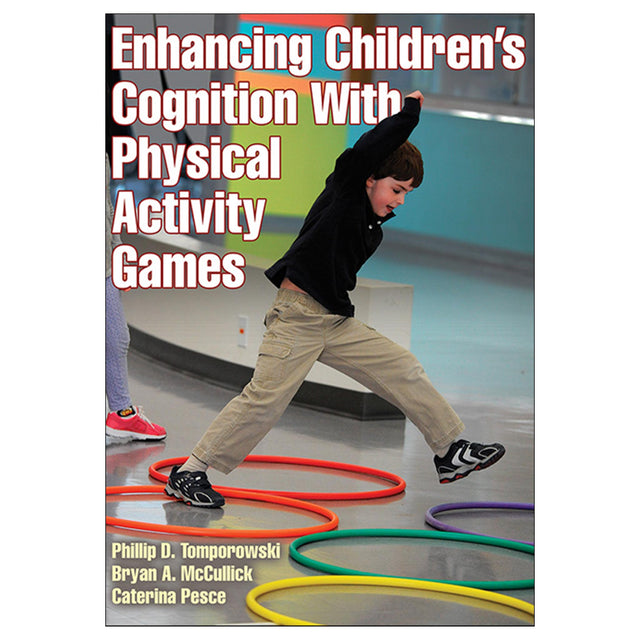Enhancing Children's Cognition With Physical Activity Games
$59.95 CAD
There are plenty of books that help you use or create games that develop children’s physical skills, and it’s now widely accepted that physical activity can have a positive effect on academic achievement. But this is the first book that shows you how to tailor physical activity games specifically to enhance children’s cognitive abilities.
Enhancing Children’s Cognition with Physical Activity Games, written by three authorities in teacher education, exercise physiology, and sport science, shows you how to apply current concepts in child development, cognitive science, physical education, and teacher training to create movement-based learning experiences that benefit children both physically and mentally.
You will be guided in creating environments that lend themselves to cognitive development and enhanced academic achievement. And you will understand not only how to create games to foster cognitive development but why such games are so useful in developing the whole child.
Enhancing Children’s Cognition with Physical Activity Games offers the following features:
•Two chapters of sample games, one for preschoolers and kindergarteners, the other for elementary school children
•Expert guidance in creating your own games for children ages 3 to 12, with an emphasis on developmental ranges of 3 to 7 and 7 to 12
•A practice-oriented model of teacher education that shows you how you can best develop and implement physical activity games that support both motor and cognitive development
The book contains a running glossary to help teachers and students understand the terms used. It also discusses several models of 21st-century learning, highlighting the role that physical activity games play in a comprehensive education.
Enhancing Children’s Cognition With Physical Activity Games is equally useful for teachers working with children in school, before school, or after school and for program directors working with children in community programs. The authors link their application to research, creating a practical reference for professionals in the field, whatever their setting.
The book is presented in three parts. Part I grounds you in the research that shows how physical activity affects children’s mental development. You will learn how physical activity benefits children’s cognition and academics, how movement games help children think and learn, and how to create a motivational environment where children want to learn.
Part II helps you translate research into practice. You will explore how movements create mental maps and affect mental health, how to engage children in playful learning, and how to incorporate physical activity into your teaching and enhance your teaching models. You will also consider how to assess children at play—how to collect data and know when your program is being effective—and how to apply physical activity games in both the home and the community.
In part III, you are supplied with games for preschoolers, kindergartners, and elementary school children. You’ll find games that emphasize three principles: contextual interference, mental control, and discovery.
Each chapter concludes with practical implications for teeachers, helping you to put into context the information you have come across in that chapter.
Enhancing Children’s Cognition with Physical Activity Games helps educators create, design, implement, and evaluate problem-solving games that foster children’s mental engagement and thoughtful decision making. Kids are highly motivated by problem-solving games, and the cognitive skills they develop in solving those problems can be translated to their academic success.
Audience
A text for undergraduate methods courses. A reference for K-12 PE and classroom teachers, before-school and after-school program directors, and in-service teachers.
Part I Physical Activity and Mental Development
Chapter 1 Understanding Children’s Mental Development
Mental Development
Skill and the Trajectory of Cognitive Development
Understanding Children’s Development From Multiple Points of View
Implications for Educators
Chapter 2 How Movement Influences Children’s Mental Development
Children’s Physical Activity
Physical Activity in Natural, Educational, and Recreational Settings
How Physical Activity and Exercise Enhance Children’s Cognition
How Physical Activity Benefits Children’s Cognition and Academics
Implication for Educators
Chapter 3 How Movement Games Help Children Think and Learn
Learning
What Influences the Shape of the Learning Curve?
Mental Energy and Children’s Learning
Developmental Tasks and Readiness to Learn
Implication for Educators
Chapter 4 Motivating Children to Learn by Playing
Motivation to Play Games
Challenge and Children’s Development
Creating a Motivational Climate for Learning and Enjoyment
Implication for Educators
Part II Translating Research to Practice
Chapter 5 Capitalizing on Physical Activity to Benefit Children’s Physical and Mental Health
How Physical Movements Create Mental Maps
Childhood Inactivity and Sedentary Behavior
Worldwide Trends in Childhood Obesity and Health
Children’s and Adolescents’ Mental Health
Implication for Educators
Chapter 6 Engaging Children in Playful Learning
Children’s Mental Engagement
Three Principles of Instruction
Teaching for Engagement
Implication for Educators
Chapter 7 Teaching Physical Activity Games for Cognitive Engagement
Who Are Physical Activity Teachers?
Skills Needed by Physical Activity Teachers
Selecting an Approach to Teaching
Enhancing the Effectiveness of Teaching Models
Considerations for Implementing Physical Activity Games Programs
Implication for Educators
Chapter 8 How to Assess Children at Play
What Is Assessment and Why Do It?
Selecting the Right Indicators of Program Success
Indicators of Program Effectiveness
Approaches to and Sources of Data Collection
Individual Differences, Measurement, and Game Development
Implication for Educators
Chapter 9 Integrating Physical Activity Games Into the Home and Community
Ecological Models
Applying Physical Activity Games to Ecological Models
21st-Century Schools
Implication for Educators
Part III Creating Effective Physical Activity Games
Chapter 10 Physical Activity Games for Preschool- and Kindergarten-Age Children
Moving From Play to Games
Games That Challenge Executive Functions
Connecting Games for Preschool- and Kindergarten-Age Children to SHAPE America Standards
Games Highlighting Contextual Interference
Games Emphasizing Mental Control
Games Highlighting Discovery
Implication for Educators
Chapter 11 Physical Activity Games for Elementary School–Age Children
Games That Challenge Executive Functions
Connecting Games for Elementary School–Age Children to SHAPE America Standards
Games Highlighting Contextual Interference
Games Emphasizing Mental Control
Games Promoting Discovery
Implication for Educators





